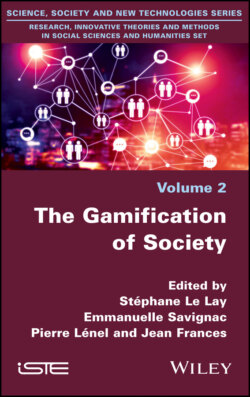Читать книгу The Gamification of Society - Группа авторов - Страница 19
1.10. Hybrids and hybridization processes
ОглавлениеIndeed, what characterizes these different devices (Alvarez and Djaouti 2010) or practices (serious gaming, serious playing, gamification) is that they combine aspects that come from play (and which in some cases remain, are experienced and perceived as such) with other elements that are not. It is probably necessary to accept that this is the production of hybrids, products or practices resulting from hybridizations between play and other dimensions. The main one is the one that refers to educational logics and devices; however, they have in common with play to resort, if not always, at least often, at the non-literality, to simulation, to exercise in the sense that to exercise is to do without really doing. One produces hybrids that will be experienced as games by some but not by others, and this, for many reasons, playful culture being one of the main reasons. If we define playful culture as the result of play experiences, it is indeed from this culture that a new experience will be perceived then eventually enjoyed. This playful experience does not always go in the same direction. Depending on the situation, it can allow one to appropriate a simulation as a game (Martin 2017) or, on the contrary, to perceive the distance to the game as one practices it in the context of a leisure activity (Lavigne 2016).
Hybrids combine elements that come from what is considered a game, and others that refer to realities (work, education) that can be thought of as antinomic to play. This produces objects or practices that are neither play nor non-play, that can be perceived as play or not, experienced by the actors as play or not. The criteria that I developed (Brougère 2005, 2012) allow us to understand the use of the terms “game” and “play” in the face of complex realities. They can allow us to see what, in these hybrids, tends toward play and/or limits this dimension. Is it still a matter of non-literality, of frivolity or consequence management? Who decides and under what conditions, without giving too much importance to the initial decision but taking into account the course of the game? What are the mechanisms that organize this decision? Are they related to play with the presence of rules or other processes that do not refer to it? Is uncertainty maintained or reduced? Ultimately, what is the level of hybridization of the game?
